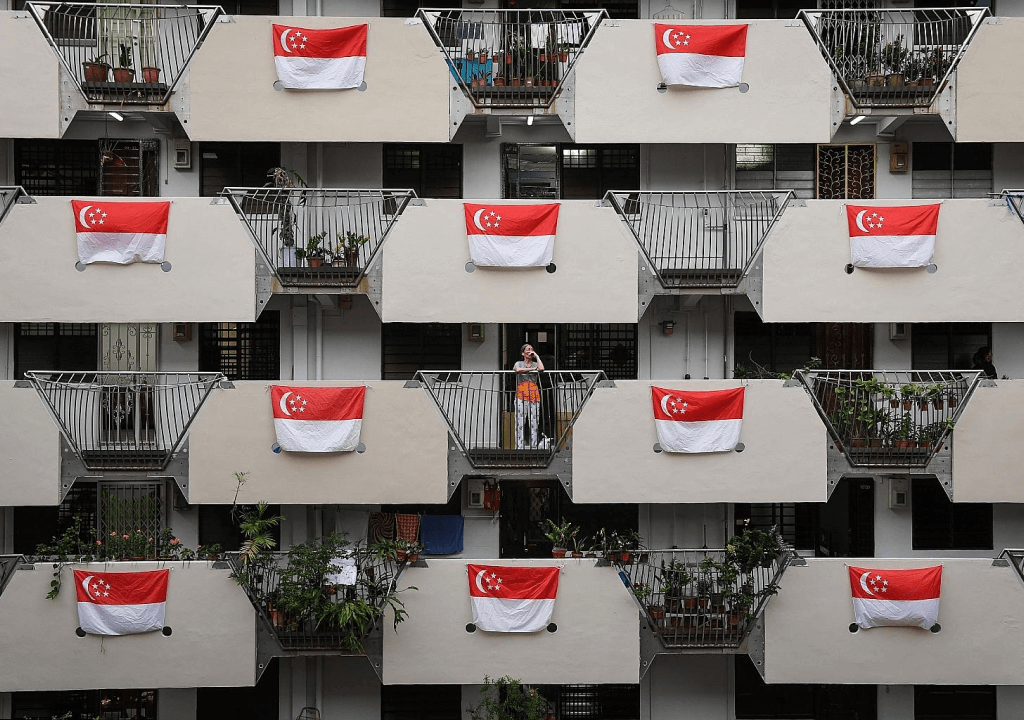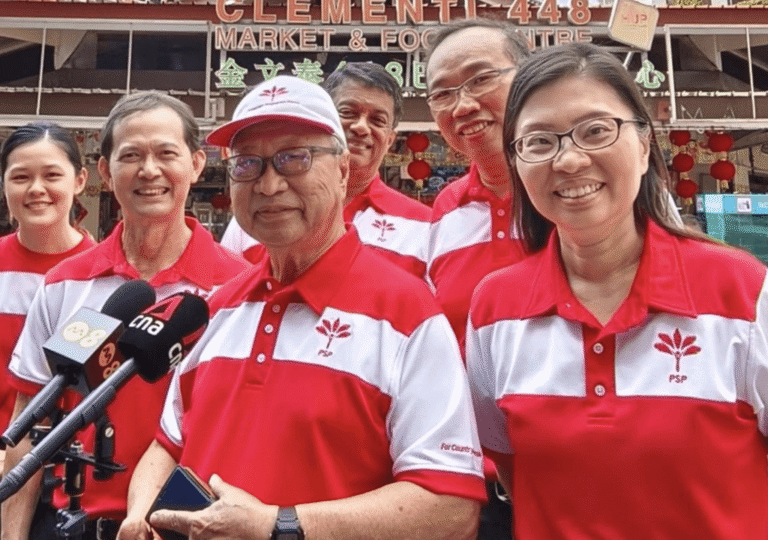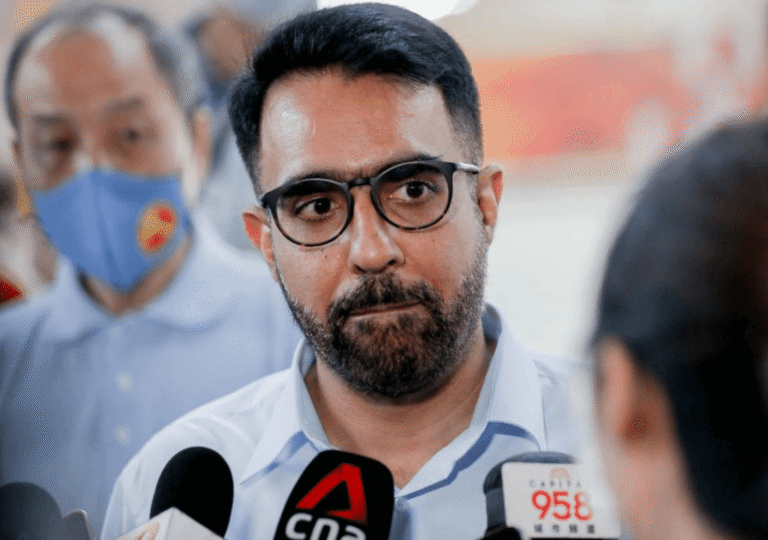As Singapore’s population continues to grow, the twin challenges of land scarcity and housing accessibility remain as pressing as ever. Since independence, the People’s Action Party (PAP) has positioned public housing as a foundational solution, rolling out a series of expansive schemes to meet the nation’s evolving needs. While the system is often praised as one of the most comprehensive and effective in the world, alternative perspectives—particularly those offered by opposition parties—are frequently sidelined in policy debates and long-term planning.
By the early 2020s, public housing in Singapore had become predominantly centered in well-planned new towns—self-contained urban communities where residential blocks are integrated with essential amenities like schools, parks, and shopping areas. Yet, as economic pressures rise and social dynamics shift, housing has once again taken center stage in political discourse.
As the general election approaches, public housing has evolved from a policy issue to a crucial benchmark of governance, providing voters with insight into how each party envisions the future of life in one of the world’s most densely populated nations.
A Core Commitment of the State
The People’s Action Party (PAP) has reaffirmed that housing remains a cornerstone of its governance strategy, emphasizing supply expansion and affordability in response to growing public concern. In March 2025, Parliament was informed that the Housing and Development Board (HDB) is set to exceed its five-year target of building 100,000 new flats—roughly the equivalent of two Ang Mo Kio towns. This milestone follows the January completion of all 92 pandemic-delayed Build-To-Order (BTO) projects, which collectively delivered 75,800 units over the past five years.
A key government priority has been to reduce BTO waiting times to pre-pandemic levels of under four years—a goal achieved in 2024. This was accomplished through the accelerated rollout of shorter-waiting-time flats, with an additional 12,000 such units planned between 2025 and 2027.
To keep public housing accessible to a wide range of income groups, the Government has bolstered financial support. In 2024, the Enhanced Housing Grant was increased to a maximum of $120,000 for families and $60,000 for singles. That same year, a new classification framework was introduced to maintain accessibility in prime areas such as Redhill and Tanjong Rhu. These flats now come with deeper subsidies, longer minimum occupation periods, and resale clawbacks designed to curb speculative gains.
Delivering the 2025 Budget, Prime Minister Lawrence Wong reported that application rates for BTO flats had not only stabilized but dipped below pre-COVID-19 levels. With demand easing, the Government will increase the BTO quota for second-timer families by five percentage points starting in July 2025. From mid-year, singles will also be eligible to apply for two-room flexi flats in all locations and receive priority under the Family Care Scheme when choosing to live with or near their parents.
WP Want reboot housing Policies
The main opposition party, the Workers’ Party (WP), has been pushing for a fundamental rethinking of Singapore’s housing strategy. In 2023, Sengkang GRC MP Louis Chua contended that recent government initiatives—such as boosting housing supply and introducing a new flat classification framework—fell short of addressing the structural issues plaguing the public housing system. He urged the Government to adopt a more forward-looking approach by building homes ahead of projected demand and investing more substantially in rental housing, which he described as an overlooked and underdeveloped segment.
The WP’s call for reform dates back to 2021, when it proposed an expanded public rental scheme to offer Singaporeans a meaningful choice between renting and owning. Chua argued that rental housing should not be confined to the lower-income demographic, but instead serve a broader range of residents. He also challenged the deeply held assumption that homeownership is inherently superior, citing high-income countries such as Switzerland and Germany, where robust rental markets coexist with strong economic and social outcomes.
The party has also consistently championed lowering the eligibility age for singles to apply for Build-To-Order (BTO) flats—from the current threshold of 35 to 28 years old. This proposal was first introduced in the WP’s 2020 General Election manifesto and has since remained a key plank of its housing platform. In a 2022 parliamentary speech, Chua criticized the existing policy for implicitly suggesting that single Singaporeans are less entitled to state-supported housing. He maintained that granting earlier access would not discourage marriage or family formation but would instead reflect evolving social norms and life choices.
PSP need Policy Reset
The Progress Singapore Party (PSP) has also advocated for a reset in public housing policy, introducing two key proposals designed to create a more equitable allocation of HDB flats and broaden housing options for younger Singaporeans.
The first initiative, dubbed the Affordable Home Scheme, would allow buyers to purchase flats at construction cost, plus a location-based premium. Crucially, payment for land costs—along with accumulated interest—would be deferred until the flat is sold on the resale market. In February, Non-Constituency MP Hazel Poa argued that this approach offered a fairer alternative to the current model, under which the Housing and Development Board (HDB) pays market land rates into the national reserves. She contended that the existing system imposes a heavy burden on citizens, who ultimately bear the cost through higher taxes and long-term mortgages that increasingly stretch over three decades.
The second proposal, known as the Millennial Apartments Scheme, envisions a government-managed stock of rental flats in centrally located areas near the Central Business District. These smaller units would be offered to young Singaporeans on short-term leases of two to five years. During the 2024 Budget debate, PSP chief Leong Mun Wai explained that the scheme would offer temporary housing for those awaiting their BTO flats, while also relieving pressure on young couples to rush into the home-buying process. It would, he added, fill a critical gap in the housing market by providing much-needed flexibility for singles and young families navigating a competitive and constrained landscape.
The PAP is rejecting opposition proposals.
In response to these proposals, Prime Minister Lee Hsien Loong told Parliament in 2023 that Build-To-Order (BTO) flats remain largely affordable, with most homeowners using Central Provident Fund (CPF) contributions to cover their mortgages, often without any out-of-pocket expenses. While he acknowledged the Workers’ Party’s call for lower flat prices might seem appealing, he warned that it would lead to significant trade-offs, such as a surge in demand and increased competition. He also raised concerns about potential windfall gains, especially for higher-income buyers who could profit from reselling subsidized flats.
In response to the Progress Singapore Party’s (PSP) Affordable Home Scheme, Minister Indranee Rajah cautioned that it could undermine Singapore’s national reserves, benefiting only a small group of buyers. Under current policy, land is sold at fair market value, and the proceeds are directed into national reserves, managed by sovereign wealth funds. The returns from these investments support the national Budget, with half allocated to current spending and the rest saved for future generations.
The PAP seems intent on rejecting opposition proposals, focusing on policies it believes are in Singapore’s best interest. While the opposition’s suggestions may lack traction, the upcoming election could see shifts in voter sentiment, particularly regarding housing policies. With this in mind, further announcements are expected in the near future as the PAP doesn’t want to lose votes.







